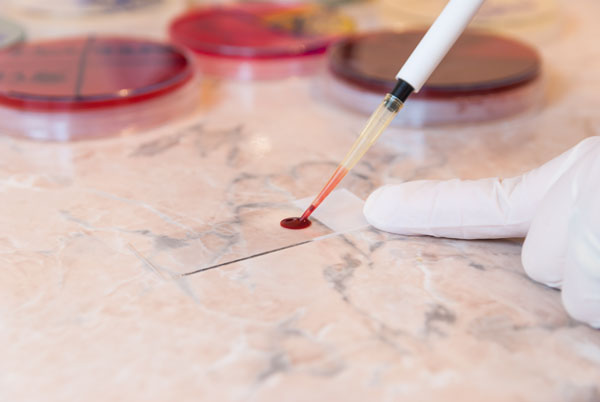E. (Sarah) Du, Ph.D, and assistant professor in the Department of Ocean and Mechanical Engineering in Florida Atlantic University’s College of Engineering and Computer Science, is developing a novel sensor and smartphone app, designed to monitor patients with sickle cell disease. Sickle cell disease is a serious blood disorder characterized by abnormally shaped red blood cells, with a reduced carrying capacity for oxygen.
Du received a $166,935 grant from the National Science Foundation, which she plans to use in the development of a smart phone app and compatible sensor used for the collection, analysis and storage of blood test data. The hope is that by providing patients with sickle cell disease with a means to organize their blood test data, they may be better able to recognize changes and abnormalities, leading to early intervention and treatment.
Sickle cell disease – also known as sickle cell anemia – is an inherited disorder in which results in abnormal hemoglobin production. These altered hemoglobin molecules alter the shape of red blood cells, leading to generation of crescent moon shaped cells. While normal red blood cells are able to swiftly move oxygen throughout the vessels in the body, so-called ‘sickle-shaped’ red blood cells become entangled with one another, impeding the delivery of oxygen to the tissues.
Clumps of abnormally-shaped red blood cells can eventually block the flow of fluid through the vessels altogether. When the mass of red blood cells break apart, it can cause a number of complications including stroke, heart failure, spleen dysfunction, chronic pain, and even death.
According to Du, “A major challenge in the management of sickle cell disease is the tremendous pain that patients endure from chronic and acute pain episodes, called pain crisis. Unfortunately, these pain episodes are unpredictable and patients never know when or where these episodes will take place.”
Currently, there are no portable blood testing sensors available for patients with sickle cell disease. Du and her collaborators plan to integrate communication technologies – like smartphones – with microfluidic engineering, to develop a disposable testing device similar to a glucometer used to monitor diabetes.
The device will measure risk indicators or pain crisis episodes, as well as monitor a patient’s hydration level and blood oxygenation. This could enable patients to anticipate pain crisis, and potentially take steps to correct imbalances.
“We will only need to use a very small drop of blood from a finger stick, that will then be loaded into a microscale channel that is biochemically modified,” commented Du. “Then, the embedded microprobes inside the channel – together with the microprocessor – will transmit the signals of blood cells to a patient’s cell phone, revealing the results of their blood test.”
Javad Hashemi, Ph.D, and chair and professor at Florida Atlantic University’s Department of Ocean and Mechanical Engineering said, “This National Science Foundation grant will help Dr. Du advance her important work on sickle cell disease, and provide a tool with great clinical utility that will help patients around the world afflicted by this debilitating disease.”
According to available statistics, about 2 million Americans carry the genetic mutation for sickle cell disease. Approximately 100,000 children and adults in the US are affected by the disease. Current treatment options include antibiotics, pain killers, blood transfusions and hydroxyurea.
Sources:
- FAU researcher to develop new technology to test for sickle cell disease using a smart phone – http://www.medicalnewstoday.com/releases/299900.php












Join or login to leave a comment
JOIN LOGIN